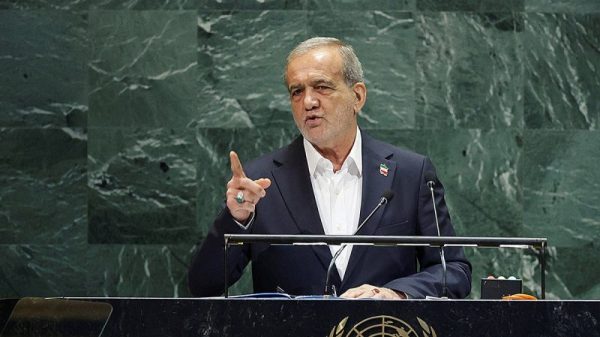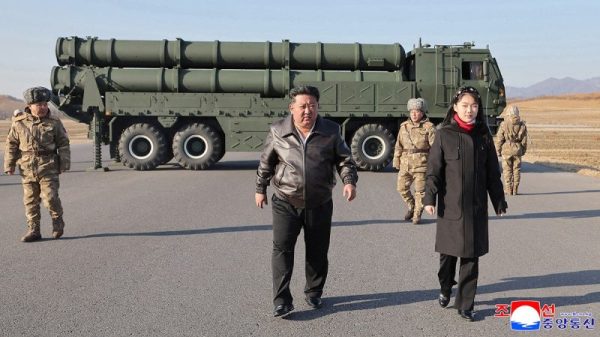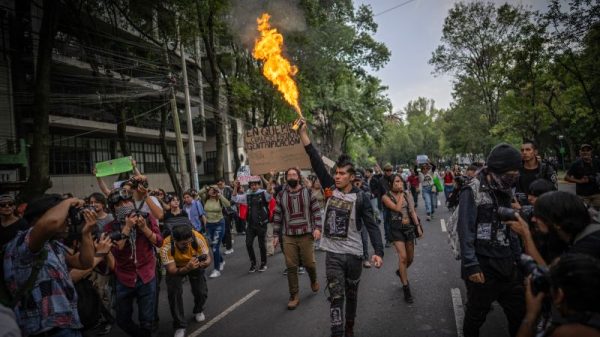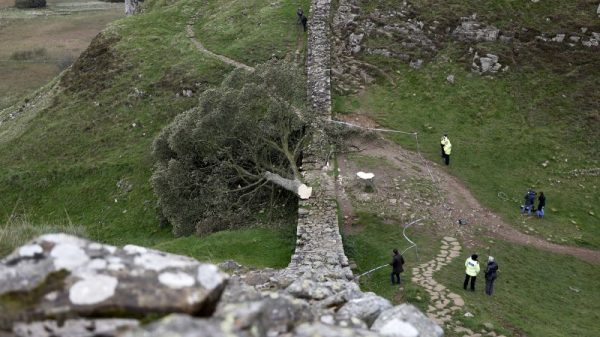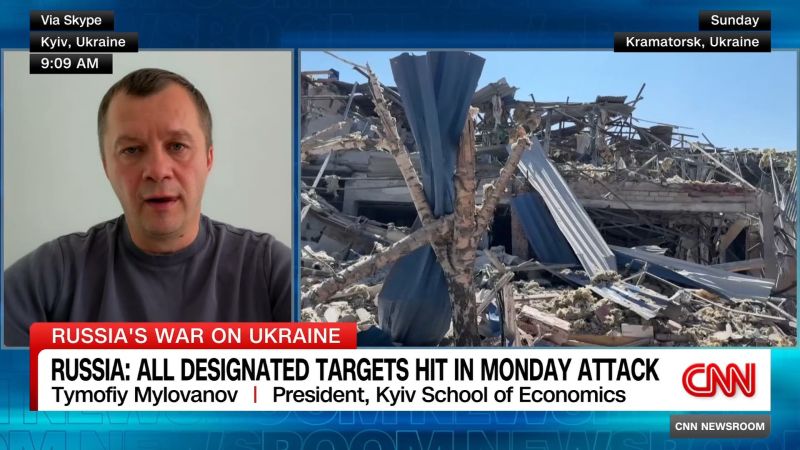When hundreds of Russian missiles and drones assaulted Ukraine on Monday morning, Victoria Novorzhytska’s power went out first. The water supply was cut immediately after that.
She knew immediately the day would turn into a struggle. She works from her home in Zhytomyr, west of Kyiv, and no power means no work.
Russia launched its biggest ever aerial attack against Ukraine on Monday, hitting energy infrastructure across the country. More strikes landed on Tuesday morning, killing five people and raising the death toll from this week’s attacks to 12.
The Ukrainian government and the country’s major energy companies would not disclose the scale of the disruption from the onslaught, but it is clear it knocked out power for millions.
Ukraine’s largest private energy company DTEK announced rolling blackouts for number of regions on Monday, including Kyiv, Odesa, Dnipropetrovsk and Donetsk.
For people on the western outskirts of the capital, this meant six hours of darkness followed by two hours of power between 2 a.m. and 4 a.m.
The scheduled cuts add inconvenience to people’s lives, but they at least allow them to plan around power outages – so that residents of high-rise apartment blocks don’t get stuck outside when the elevators are not working, and that people charge up vital electronic devices while the power is on.
That these blackouts are already needed in the summer is particularly worrying. This situation could be far worse in a few months’ time, when demand for electricity tends to be higher in the cold, dark winter.
“The key task is to get through the winter, to provide energy supply to critical infrastructure, people and the economy,” Ukraine’s Prime Minister Denys Shmyhal told reporters on Tuesday.
Shmyhal said the focus now was on repair and rebuilding. “We do this all the time, after each Russian shelling billions are allocated (and) equipment is brought to Ukraine.”
Powering up
Ukrainians have become used to living under the constant threat of blackouts. Monday’s attack stood out because of its massive scale, but it was not unusual in terms of the means Moscow used and the targets it chose. Energy infrastructure has long suffered from Russian strikes.
In Kyiv, authorities have set up “points of invincibility,” tents and other areas where people can charge their electronics and use the internet during power cuts.
The frequent attacks on energy infrastructure have also led many Ukrainian cities to invest in solar power. Kyiv mayor Vitaliy Klitschko said the city has been subsidising the purchase of generators and solar panels by housing cooperatives and condominiums so that they can be independent of the energy network. The government has also put tax cuts and grants into place to help people get the equipment.
The vast majority of businesses, from tiny food stalls to huge shopping malls, now have their own generators, their deep rumble synonymous with blackouts.
Maksym Holubchenko, a 25-year-old barista in Kyiv said his cafe’s generator saves it from having to shut down every time there is a power cut after Russian strikes. It happens about once a month at the moment, he said.
Kyiv was hot on Monday and the thermometer on the wall in Holubchenko’s cafe showed 34 degrees Celsius (93 degrees Fahrenheit). The generator is not powerful enough to cover the needs of a normal service in the the cafe, so Holubchenko has to make compromises.
“In the winter we have enough power from the generator. In the summer we have to switch off the air conditioner and… parts of the coffee machine,” he said.
The cafe has sockets ready for customers who need to charge up their phones and other gadgets, as well as use the internet during power cuts.
Russia has been targeting Ukraine’s energy grid since its full-scale invasion in February 2022 but this year Moscow began specifically targeting power generation facilities: thermal power plants, hydroelectric power stations and even energy storage facilities.
Olha Matskiv, a legal expert at Global Rights Compliance, an international NGO that is advising Ukraine on investigating and prosecuting war crimes, said the attacks are “creating conditions inside Ukraine that are incompatible with life.”
“This is a tactic that the Russian army is using to drain Ukraine’s internal reserves, both human and financial, slowing down the country’s economy, which cannot develop when businesses are closing due to lack of electricity,” she added.
The government has been trying to fortify Ukraine’s energy network so that it can withstand strikes, first wrapping them to protect them from shrapnel and then using reinforced concrete defenses that can withstand some direct hits.
On Tuesday, Prime Minister Smyhal said the measures are working. “Dozens of missiles attacked substations on Monday and we lost a very small amount of our equipment out of dozens of hits yesterday thanks to the protection,” he told reporters.
He added that Ukraine is experimenting with huge protective structures the size of three football fields to cover bigger power stations.
“They are extremely expensive, and their economic feasibility is still not clear. The cost of such protection for six substations is 188 billion hryvnia ($4.5 billion). This is an incredible amount of money that partners are not ready to give and that is not in the state budget,” Smyhal said.











